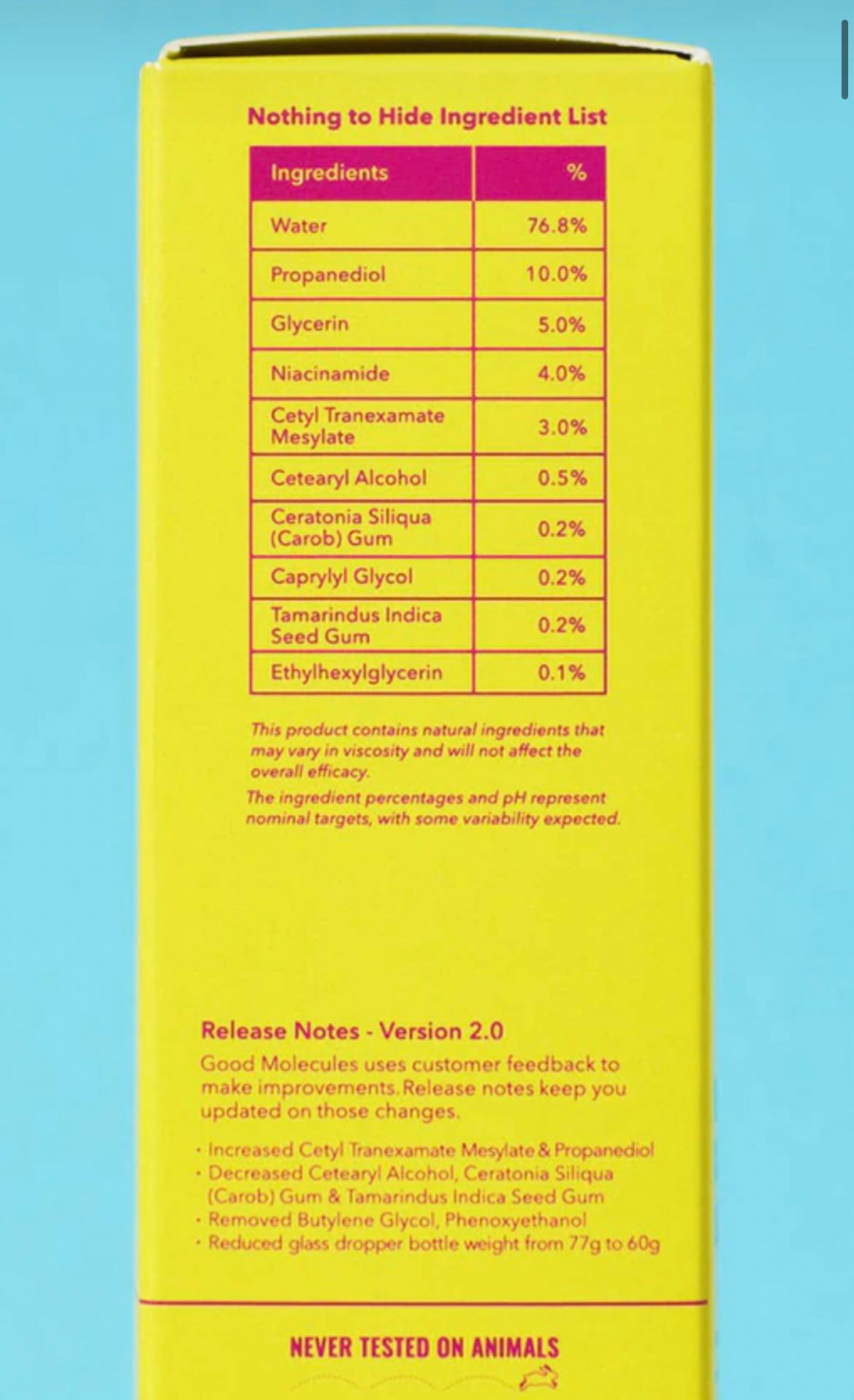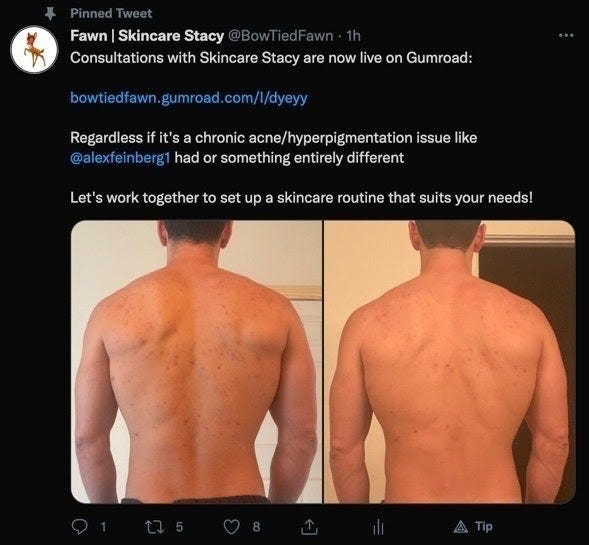Brand Review: Good Molecules
"Good" Just About Covers It
Disclaimer: I am not a doctor, just a cartoon deer on the internet with a background in chemistry and a hyperfixation on skin. This is not medical advice.
I am not your typical skincare enthusiast. I do not enjoy skincare as a hobby; rather, I see it as one component in the nexus of health and aesthetics, not unlike hypertrophy training. When I figure out what works for me, I stick to it. Thus, I do not often try out new products unless I have a specific need for them, and I do not exactly have brand loyalties. There are some brands I tend to like: CeraVe and Vanicream are staples in my vanity for how affordable and basic they are, but in general, I prefer to evaluate specific products rather than assume a brand’s entire line is great. Skincare is mostly marketing anyways, and I don’t care for misleading advertisements or fancy packaging.
That being said, there is one smaller brand I adore: Good Molecules. To be clear, I’m not an affiliate, I just think they’re a damn good brand. I like Good Molecules because you know exactly what you’re getting in each product. For example, check out this packaging for the discoloration serum:
Not only do you have the ingredient list for the product in order of decreasing concentration even at less than 1%, but you know exactly at what concentration each of the ingredients are included. This is important to me because I get irritated seeing brands claiming trendy ingredients like niacinamide without being transparent about the actual concentration included in the formula. For example, studies (Example 1, Example 2) show niacinamide’s effectiveness in the 2-5% range. I don’t want to see brands claiming niacinamide in their marketing if you could eyeball the concentration at <2%*. I’m doubtful niacinamide is going to do anything meaningful for your skin at lower concentrations, but it’ll sure allow the brand to charge more for the product!
I also like that Good Molecules is reasonably priced across the board, that the formulations look alright to me at a glance, and that I’m seeing packaging in dark glass bottles. We like darker bottles in skincare as some ingredients are inactivated by light!
So far, the only real gripe I have with them is that I don’t think it’s ethical to sell powdered Vitamin C because consumers cannot be trusted to dilute it properly. Most commonly found in skincare as l-ascorbic acid, vitamin C is a finicky, unstable molecule. I suspect skincare companies like selling it as a powder for the stability. Vitamin C has incredible anti-aging properties (stay tuned for a future installment in the anti-aging series), but it is harsh on the skin. It does not play well with acids or retinoids, and I would not use it at concentrations above 15%. Yeah, brands aren’t liable for consumers being dumb, whatever. I still don’t like it.
Anyways, the crux of this post is that I generally like Good Molecules, and you should consider checking out the ingredient lists to see if any of their products are right for you.
That’s all for now! Happy skincare!
*If you haven’t already, go back and read my surfactants post as it includes a blurb about gauging concentrations on ingredient lists
Note: you can now book consultations with me! Check it out here or DM me on Twitter to book with ETH




Awesome review. Dr Dray on YouTube also raves about Vanicream. Re: product ingredient concentrations, I use Olay Regenerist Micro-Sculpting Cream which has niacinamide but now I'm wondering whether it actually has a high enough concentration to be effective...